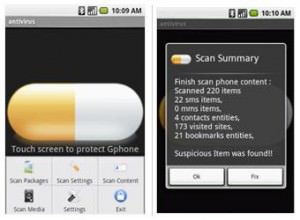What You Need to Know About SOC 2 Compliance
SOC 2 is one of the top voluntary compliance standards for service organizations all over the world. Created by the AICPA—American Institute of CPAs, it specifies how a company should be managing the data of their customers. There are certain Trust Services principles that guide this standard. After successfully completing the audit, you will get a SOC 2 report which will be tailored to your needs. The SOC Type 1 describes the systems in place inside your organization and whether or not they comply with the security principle. The SOC 2 Type 2 compliance report describes how efficient all these systems are. Depending on your specific business practice, you can design controls following SOC 2 principles of trust. Read on to learn more about SOC 2 compliance:

What are the benefits of SOC 2 compliance?
One of the most important benefits of getting SOC 2 compliance is that it shows your existing and prospective customers that you have high-level information security in your organization. During the on-site audit, your systems will be put to test and have to pass the rigorous SOC 2 compliance requirements. You have to prove that you handle sensitive information responsibly. It is crucial to implement the required security controls as it reduces the chances of your user’s privacy getting violated or their data getting stolen.
In case there is a breach, having SOC 2 compliance will lessen its impact, like reputational damage and regulatory action. Also, as per the framework, compliant organizations can share data only with other compliant organizations. You can use the SOC 2 certification to show your customers that you are dedicated to maintaining information security. It will help you get new business opportunities. It is important for you to learn what SOC 1 and SOC 2 compliance entails and their differences in order to take advantage of them. Both of them have differences in terms of the scope of the audit and the SOC 1 and SOC 2 compliance cost.
Who performs a SOC 2 audit?
Independent Certified Public Accounts (CPAs) or accounting firms are the only ones qualified to perform SOC 2 audits. SOC 2 auditor’s work is regulated by the professional standards established by the AICPA. They also have to follow certain guidelines while planning, executing, and overseeing the audit. Moreover, each AICPA audit is required to undergo a peer review. It is possible for CPA organizations to recruit non-CPA professionals that have the required standard of SOC 2 security and information security skills to prepare for the audits. However, only a CPA can provide and disclose the final report. Once you successfully pass the SOC 2 audit, you can add the logo of AICPA to your website.
What are the Trust Service Principles of SOC 2?
The SOC 2 compliance meaning and report will differ from you on the basis of the scope of the audit. The SOC 2 Type 2 compliance audit assesses whether or not you are complying with the following trust service principles:
1. Security
For this principle, the auditor will check if your system resources are protected against any unauthorized access. With the right access controls, you will be able to prevent unauthorized data removal, theft, system abuse, improper disclosure or alteration of information, and misuse of software. You can prevent security breaches and unauthorized data access using tools like web application firewalls, intrusion detection, and two-factor authentication.
2. Availability
This principle refers to how accessible your system, services, and products are with respect to the service level agreement or the contract. Both parties should set a minimum level of acceptable performance for system availability. It is important to note that this process doesn’t focus on usability and system functionality. Instead, there are certain security-related criteria affecting availability. You have to monitor network availability and performance and handle security incidents and site failover.
3. Processing integrity
For this principle, you have to address if your system is achieving its purpose. If your company processes data, it is your responsibility to ensure that it is valid, complete, timely, authorized, and accurate. However, you should note that process integrity doesn’t impact data integrity. Consider this—if data has errors prior to entering the system, the processing entity isn’t responsible for detecting them. You have to monitor data processing and couple it with QA procedures, as it will help ensure processing integrity.
4. Confidentiality
Confidential data essentially means its disclosure and access are restricted to a set of organizations or persons. It might include data intended for company personnel and business plans, internal price lists, sensitive financial information, and intellectual property. Through encryption, you can ensure that the confidentiality of this information is protected during transmission. You can use application and network firewalls, along with access controls for protecting information that you store or process.
5. Privacy
This principle addresses if your way of collecting, using, disclosing, retaining, and disposing of personal information is within the privacy notice set by you and the criteria set by the generally accepted privacy policies of AICPA, such as GAPP. Personal identifiable information includes the details used for distinguishing an individual, such as their name, address, phone number, social security number, etc. You have to put controls in place to ensure that this information is protected from any unauthorized access.
So, we hope that this article helped you get an understanding of SOC 2 compliance. Remember that even after you get the certification, you have to implement practices that ensure that your customer information remains secure. It is recommended to use an SOC 2 compliance software that will ease off your workload. You should create a SOC 2 compliance checklist to help get a better handle on your security controls.





